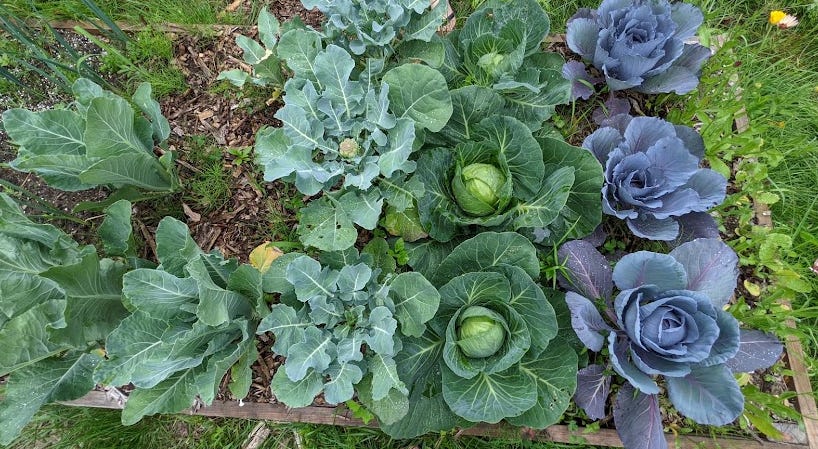The Atoms of Preparedness
How to prepare for a future we can't imagine
In a short exchange with Chris Smaje @csmaje on twitter today, the issue of the inability to imagine all future scenarios came up. The thread can be tracked backwards from here.
His initial point was that if we take “collapse” scenarios seriously, then we need to think of more than simply tending our own garden. Focus must be given to how we will relate and navigate socially under those conditions. Would we be able to support one another live with a relatively decent standard of life? Or would things devolve into zero-sum competition for existing resources? Important question.
He’s absolutely right that what would be demanded given a “collapse” would be more than tending your own garden in almost any scenario — but this raises the question what should we be doing now?
We can’t imagine all future scenarios. Thus, we can’t know what the form of social solutions will look like to problems not-yet-revealed. Does it follow that there is nothing we can do?
Social systems can re-organize rather flexibly relative to other kinds of systems. Consider your body: don’t try to reorganize it. If you do, the parts you’ve shuffled around will quickly cease to exist.
With social systems we have a bit more room to play. We can change the way things are ordered. You can move from Florida to New Hampshire, with a whole new set of neighbors, and continue to exist.
This flexibility in arrangement space can be an advantage, but only if the parts that can be shuffled contain the knowhow to achieve the basic necessities of life.
So, we can’t imagine everything that will be thrown our way, but we can articulate the core functions that we need to be able to execute in order to persist: production of food, shelter, clothing, defense and security.
We should focus on the atoms of preparedness such that they can be reorganized as necessary to respond to the dynamic demands of the environment.
The idea is to take time now to begin developing basic knowhow around these core items. It is more important to learn to tend a garden than to tend a garden. It is more important to learn how to heat yourself in the winter than it is to heat yourself in the winter. It is more important to learn some basic carpentry than it is to construct every wooden item you use on your own.
Knowhow is hard won. It takes time. But if we prepare, instead of predict, whatever does come our way, we will have a reservoir of basic knowhow to draw from as needed. Possessing knowhow yields optionality: you don’t have to use it.
A community of individuals and families that have such a collective reservoir will figure out how to organize themselves as the environmental stressors present themselves.
To Chris’s point, perhaps the best knowhow to begin working on today is relationship development with those around you. This is another skill. Like the others, it takes time.
For s future we can’t imagine, instead of planning for scenarios, build preparedness, and deploy as needed.
All best,
Joe


When I play the piano, I know all the notes on the sheet music. And I know when to play each key and which key on the piano to press.
I don't understand why the notes are arranged like this. And due to this lack of understanding, I would fail in a jazz ensemble where there's no one telling me what and when to play.
On the flip side, it is interesting how we quickly and broadly we can lose the "art" of working with certain resources. Hemp is an interesting example of a material that was broadly used in construction and textiles for thousands of years. Today, its use has been relegated primarily to CBD production and smokable products. Bringing hemp back as a building material isn't as straight forward as planting seeds, harvesting and processing. Not only do we not have the equipment to do it, but the genetics for construction-quality hemp have largely been bred out and the cultivation practices would need to be relearned. Then, of course, there would be the process of reincorporating hemp material into building practices which have been refined for other materials.
We've lost the art of working with hemp as a building material. US regulations against hemp cultivation were a contributing factor here. With recent reforms we now we see startups looking to reinvest and bring hemp construction materials and practices back to the market.
https://www.engineering.com/story/not-just-a-pipe-dream-hemp-as-a-building-material